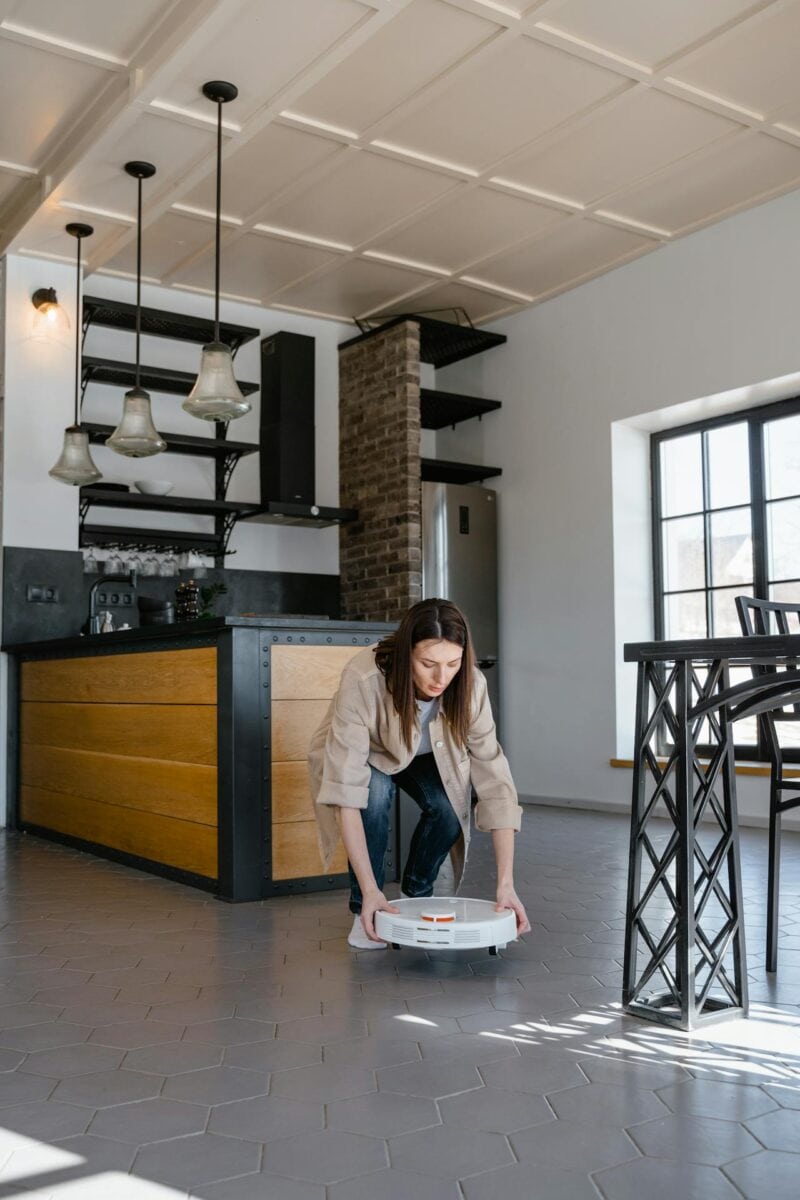What are wet vacuums? And how do they compare to their cordless counterparts? Here, we determine which one is best for your home
By Becky Coulson
I’m not going to lie: I’m obsessed with floors. I don’t even mind a bit of dust in the house, but when it comes to the floors, I’m a bit of a freak. I hate the feel of grit or dirt under my feet, and since I have dark coloured rugs, even the tiniest bit of cat hair on them makes me crazy. So, as you can imagine, I’ve seen my fair share of vacuum cleaners. And I’ve learned that there are all kinds of them: portable, industrial, wet, cordless, and even robotic, for example.
But…which ones get the job done best?
From wet vacuums to efficient cordless vacuums by Dyson, I’ve had the opportunity to test and compare various cleaning solutions.
Here below, I’ll share my personal experiences and insights on the pros and cons of wet vacuums versus traditional ones.
Understanding Wet Vacuums

What is a Wet Vacuum?
A wet vacuum, also known as a wet/dry vacuum, is a versatile cleaning device designed to handle both wet and dry messes. These machines can suck up liquids as well as dry debris, making them incredibly useful for a wide range of cleaning tasks.
I remember the first time I used a wet vacuum. It was during a particularly messy cleanup after a pipe burst in my basement. I was amazed at how quickly and efficiently it sucked up the water, saving me hours of mopping and potential water damage. Which is super important, as water damage in a house can lead to black mould. Which can lead to serious health issues.
Wet Vacuums vs. Cordless Vacuums
Let’s dive into the pros and cons of each type of vacuum cleaner.
Wet Vacuum Pros
- Versatility: Can handle both wet and dry messes
- Powerful suction: Often more robust than traditional vacuums
- Large capacity: Typically hold more debris before needing to be emptied
- Durability: Built to withstand tougher cleaning jobs
Wet Vacuum Cons
- Bulkier: Generally larger and heavier than traditional vacuums
- Noisier: Often produce more noise during operation
- More expensive: Higher initial cost compared to many traditional vacuums
- Overkill for everyday cleaning: May be unnecessary for routine household tasks
Cordless Vacuum Pros
- Lightweight and easy to move. Perfect for quick, everyday cleaning
- Specialised attachments. Often come with tools for various surfaces and crevices
- Better for carpets. Designed specifically for carpet cleaning with rotating brushes
- More affordable. Generally less expensive than wet vacuums
Cordless Vacuum Cons
- Limited to dry messes. Cannot handle liquid spills
- Less powerful. May struggle with heavy-duty cleaning tasks
- Smaller capacity. Require more frequent emptying
- Not ideal for workshops or garages. Less durable for tough environments
My Personal Experience
Over the years, I’ve found that having both types of vacuums in my cleaning arsenal has been invaluable. For daily cleaning, I rely on my cordless vacuum. It’s lightweight, easy to move around, and is ideal for quick touch-ups around the house.
However, when it comes to tackling tougher jobs, my wet vacuum is my go-to tool. Whether it’s cleaning up after a DIY project, doing finishing touches to clean the car, or even dealing with burst pipes, the wet vacuum has saved the day more times than I can count.
Innovative Features to Look For
When shopping for either type of vacuum, keep an eye out for these cutting-edge features:
- Cyclonic separation technology for maintaining powerful suction
- HEPA filtration systems for improved air quality
- Adjustable suction power for different surfaces
- Cordless options with long-lasting battery life
- Smart sensors that detect and adapt to different floor types
Making the Right Choice
Ultimately, the choice between a wet vacuum and a traditional vacuum depends on your specific cleaning needs. Here are some factors to consider:
- Home environment. Do you have mostly carpets or hard floors?
- Frequency of spills. How often do you deal with liquid messes?
- Storage space. Do you have room for a larger wet vacuum?
- Budget. Are you willing to invest in a more versatile cleaning tool?
My Recommendations
Based on my experience, I recommend having both types of vacuums if possible. A high-quality traditional vacuum with strong suction and a variety of attachments is perfect for everyday cleaning. Look for one with cyclonic technology and a HEPA filter for the best results.
But for those unexpected messes and more challenging cleaning tasks, a reliable wet vacuum is invaluable. Opt for a model with a large capacity and adjustable suction power to handle various cleaning scenarios.
Remember, the best vacuum cleaner is the one that fits your specific needs and makes your cleaning routine easier and more efficient.
Whether you choose a wet vacuum, a traditional cordless vacuum, or both, investing in quality cleaning tools will pay off in the long run with a cleaner, healthier home.
- Meet Ethical Fashion Designer Kelli Donovan - July 26, 2025
- 7 Of The Best Clean At Sephora Makeup Brands - July 13, 2025
- Eluxe Horoscopes For July 2025 - June 30, 2025
